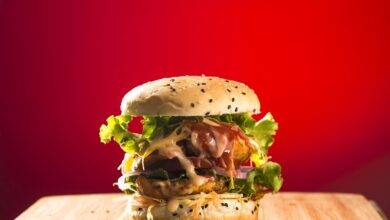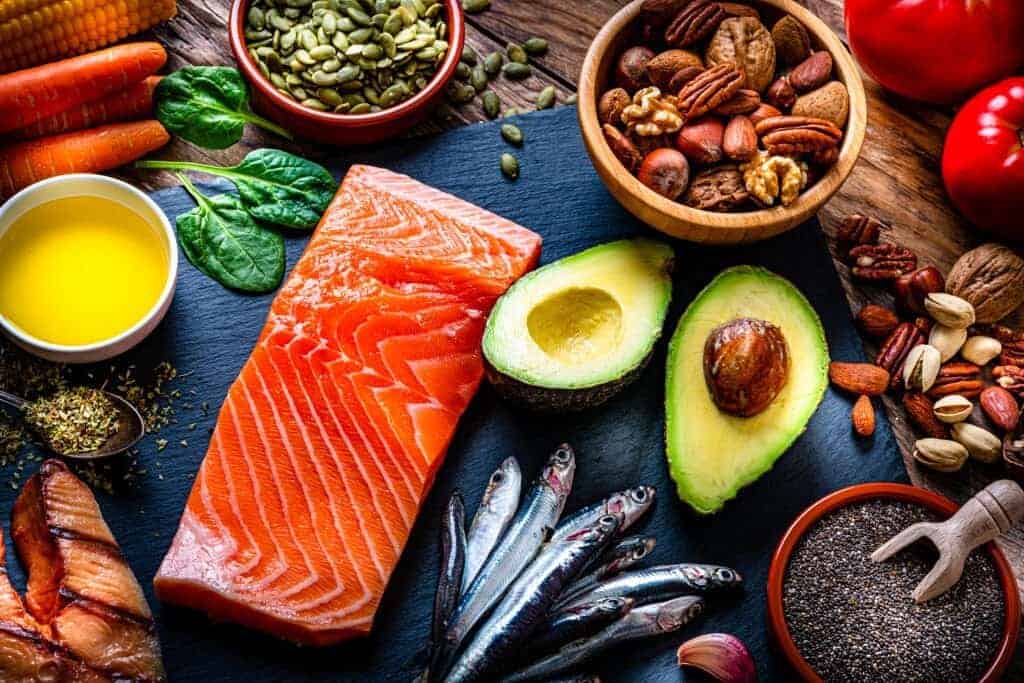Revamp Your Digestion: Complete Guide to Bland Food Diets

Introduction
Dealing with constant digestive discomfort can be both frustrating and exhausting, but did you know a bland food diet might just be the answer to your troubles? Designed to soothe your gut, this gentle yet effective eating plan focuses on easily digestible foods that provide relief from common gastrointestinal issues such as heartburn, diarrhea, nausea, and vomiting.
In this comprehensive guide, we will dive into the world of bland diets – outlining which foods to enjoy and avoid, debunking myths surrounding their effectiveness, and sharing tips on how to maximize their benefits for optimal digestive health.
Bland Food Diet: Key Takeaways
- A bland food diet can improve digestive health by reducing irritation and inflammation in the gastrointestinal tract.
- Low-fat dairy products, certain vegetables, low-fiber fruits, processed grains, and lean protein are safe to eat on a bland food diet for better digestive health.
- High – fat dairy products, seeded and acidic fruits, whole grains, as well as fatty meats and beans should be avoided on a bland food diet to reduce gastrointestinal distress.
- Adhering to lifestyle changes tailored to stress management techniques and weight reduction will further promote the positive effects of a bland food diet.
Why Follow A Bland Food Diet?
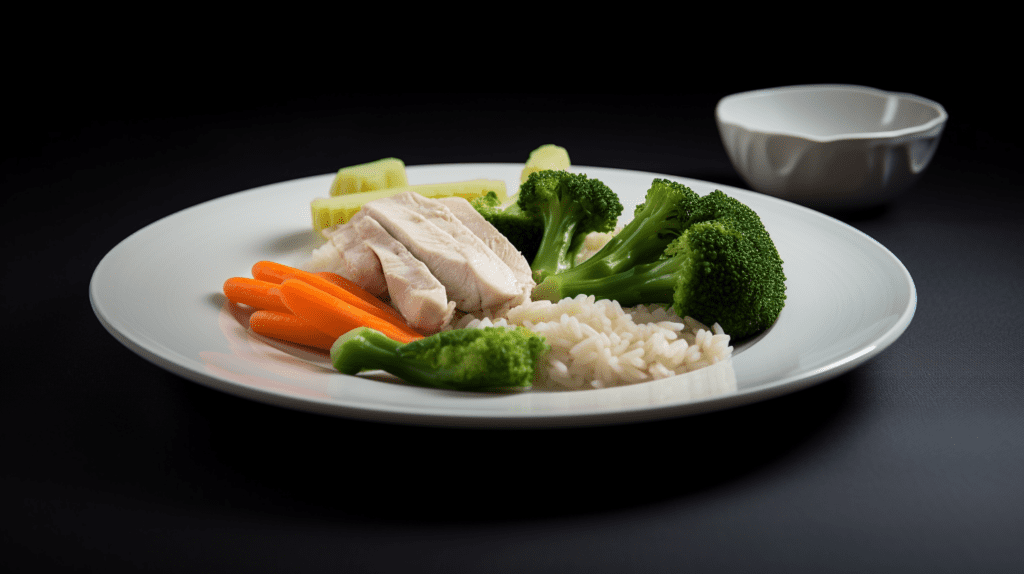
Following a bland food diet can improve digestive health by reducing irritation and inflammation in the gastrointestinal tract.
Improving Digestive Health
Improving digestive health is essential for overall well-being, as it not only reduces discomfort and pain but also ensures your body absorbs nutrients effectively. Adopting a bland food diet can be a beneficial step in this direction, particularly for individuals experiencing gastrointestinal distress such as heartburn, vomiting, diarrhea, or nausea.
Additionally, by incorporating easily digestible foods in your diet plan like refined grains and lean proteins from poultry, fish, eggs, or tofu—individuals may experience relief from conditions like peptic ulcers or gastritis.
Moreover, lifestyle changes tailored to stress management techniques and weight reduction will further boost the positive effects of a bland diet.
Reducing Irritation And Inflammation
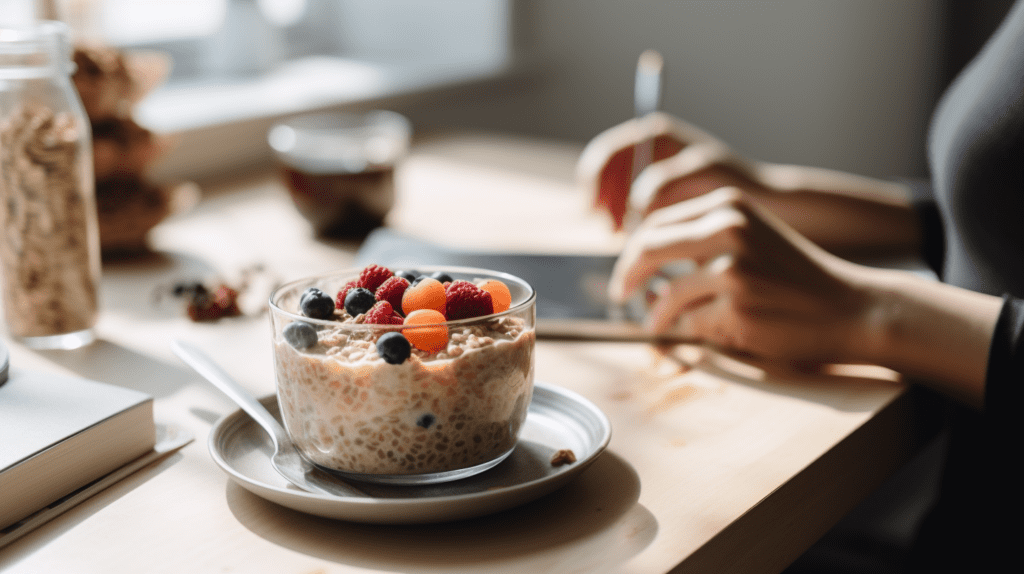
One of the key benefits of following a bland food diet is reducing irritation and inflammation in the gastrointestinal tract. By consuming easily digestible, low-fiber, and non-spicy foods, you can minimize discomfort associated with various digestive issues such as gastritis, ulcers, heartburn, acid reflux, nausea, vomiting, and gas.
For example, opting for gentle-on-the-stomach options like cooked vegetables or fruit juices rather than high-fiber fruits or gas-producing vegetables can significantly lessen the risk of excess flatulence or worsening symptoms related to gastroesophageal reflux disease (GERD).
Furthermore, incorporating lean protein sources like poultry or fish instead of fatty meats helps in alleviating intestinal inflammation often linked to inflammatory bowel diseases.
Foods To Include In A Bland Diet
Include low-fat dairy products, certain vegetables like carrots and spinach, low-fiber fruits such as bananas and canned peaches, processed grains like white bread and pasta, and lean protein sources like skinless chicken and fish.
Low-fat Dairy
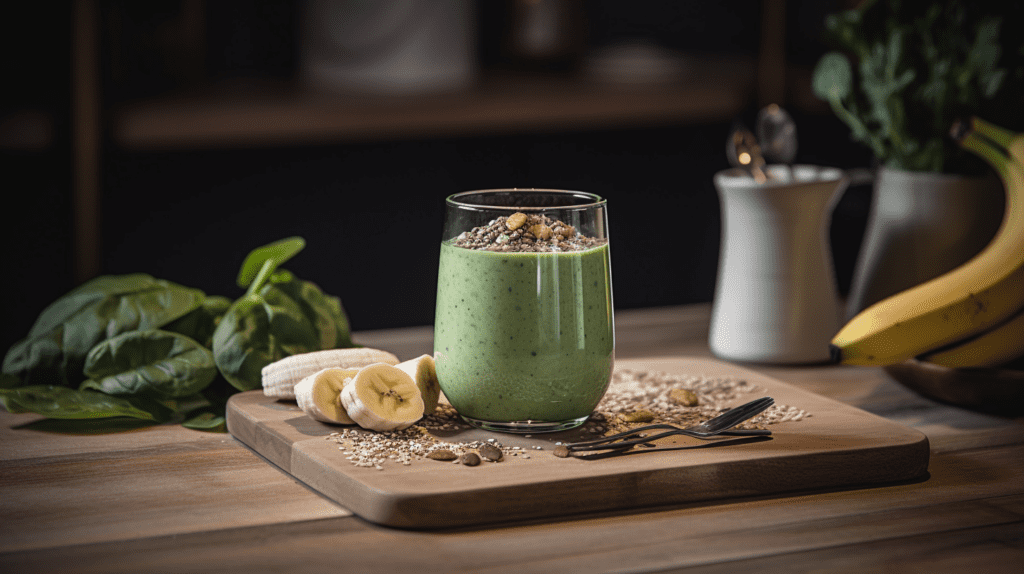
Low-fat dairy products are an essential component of a bland food diet, as they provide the necessary nutrients without causing irritation to the digestive system.
Examples of low-fat dairy options include skim milk, yogurt with no added sugar, and small amounts of soft cheeses like cottage cheese.
When incorporating low-fat dairy into your bland diet regimen, be cautious about consuming excessive quantities or choosing full-fat alternatives that may exacerbate gastrointestinal issues.
Instead, focus on moderation and opt for unsweetened or lightly sweetened versions when possible.
Certain Vegetables
When following a bland food diet for better digestive health, it’s essential to choose the right vegetables that suit your body’s needs. Vegetables like beets, carrots, and spinach are excellent choices as they are low in fiber and easy on the GI tract.
Beets contain betaine, an anti-inflammatory compound that can soothe irritated stomach lining while also aiding digestion. Carrots have high soluble fiber content that promotes healthy bowel movements and stabilizes blood sugar levels.
Spinach is loaded with essential vitamins and minerals that help regulate gut health, including magnesium for muscle relaxation and vitamin B6 for reducing inflammation.
Overall, choosing certain vegetables that are gentle on your digestive system can significantly improve symptoms of gastrointestinal distress such as bloating or constipation while providing much-needed nutrients for optimal wellness.
Low-fiber Fruits

Low-fiber fruits are a staple in a bland diet for better digestive health. These fruits include bananas, melons, and canned or cooked fruit without skin or seeds.
While fiber is an essential nutrient for overall health, it can be challenging to digest and irritate the gastrointestinal tract when experiencing digestive distress. By incorporating low-fiber fruits into your diet, you’ll not only reduce irritation but also benefit from their essential vitamins and minerals.
For example, bananas are rich in potassium and vitamin C while cantaloupes offer vitamin A and antioxidants.
Processed Grains
Processed grains like white bread and soft white pasta are recommended for a bland diet for better digestive health. These refined grains have had their outer layer removed, making them easier to digest and less likely to cause irritation in the gut.
Other examples of processed grains suitable for a bland diet include saltine crackers, pretzels, and plain cereals like corn flakes or rice crispies.
It’s also crucial to avoid high-fiber whole grain products on a bland diet as they can exacerbate digestive symptoms such as gas and bloating. Examples of these grains include whole wheat bread, quinoa, brown rice, bulgur wheat, and barley.
Remember that everybody is different when it comes to which foods irritate the gut more than others; some people find certain foods irritating even if they’re considered easy-to-digest by others.
Poultry, Eggs, And Fish

Poultry, eggs, and fish are highly recommended sources of lean protein for those following a bland food diet. These foods are easy to digest and don’t irritate the digestive tract like fatty meats or beans can.
For example, skinless chicken breast is an excellent source of low-fat protein that can be incorporated into soups or stews on the bland diet. Eggs can be prepared boiled or poached with minimal seasonings to provide additional protein and nutrients.
Fish such as salmon or cod are also great options due to their high omega-3 content which helps reduce inflammation in the gut.
Foods To Avoid On A Bland Diet
Avoid high-fat dairy products, seeded and acidic fruits, whole grains, fatty meats, poultry, beans, and fish on a bland diet to reduce gastrointestinal distress.
High-fat Dairy
High-fat dairy products are not recommended for individuals following a bland diet for better digestive health. These products can trigger symptoms like heartburn, acid reflux, and other digestive irritations due to their high fat content.
It’s best to avoid dairy products that have strong flavors as well since they may worsen symptoms.
If you’re looking to incorporate some dairy into your bland diet plan, it’s important to choose the right type of product. Low-fat and easily digestible options are preferred since they won’t exacerbate digestive issues.
For example, skim milk is a good choice because it has less than 1% fat content while still providing essential nutrients like calcium and vitamin D. Additionally, nonfat Greek yogurt or cottage cheese provides protein without excessive amounts of fat that could cause stomach upset.
Seeded And Acidic Fruit
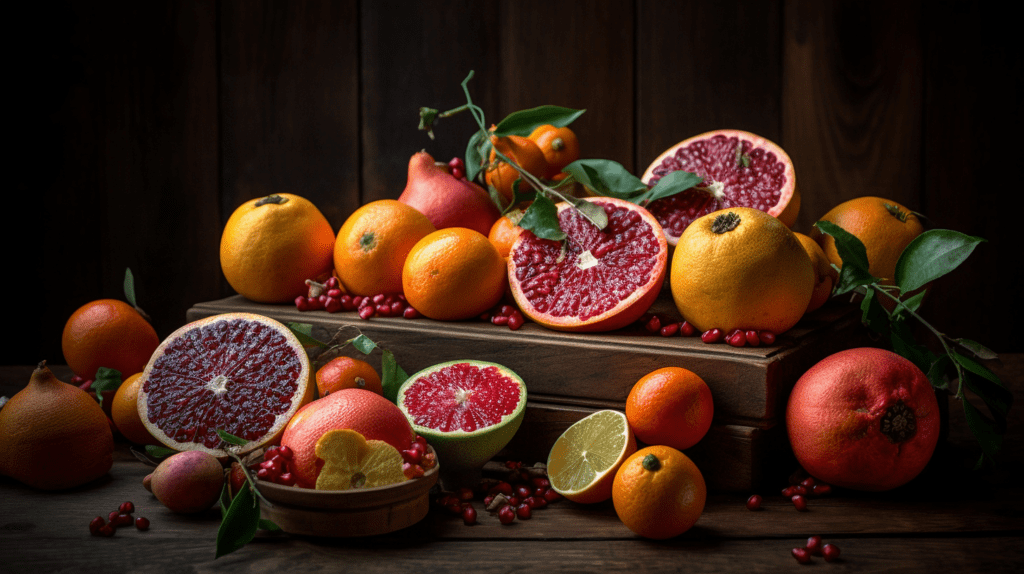
On a bland diet, it’s important to avoid seeded and acidic fruits as they can worsen digestive symptoms. Fruits like oranges, lemons, limes, and grapefruits are high in acid content which can irritate the stomach lining causing heartburn and acid reflux.
Additionally, fruits with skin or tiny seeds such as raspberries or strawberries should be excluded as they may trigger gastrointestinal distress. Instead of these high-acidic fruit options, opt for low-fiber fruits like bananas and melons that are gentle on the digestive system while still providing essential vitamins and minerals.
Whole Grains
Whole grains are typically not recommended on a bland diet due to their high fiber content. The aim of the bland diet is to reduce irritation and inflammation in the digestive tract, which fiber-rich foods like whole grains can worsen.
Refined grains such as white bread and pasta can be included instead. It’s important to consult with a doctor for individualized recommendations on a bland diet, including whether or not whole grains should be avoided.
Fatty Meats, Poultry, Beans, And Fish
Fatty meats, poultry, beans, and fish should be avoided on a bland food diet for better digestive health. These foods are high in fat and can irritate the gut, especially in individuals who have gastrointestinal distress.
Instead, lean protein sources like skinless chicken, fish, shellfish, eggs, and silken tofu are safe to eat on this type of diet. It’s essential to note that fried or breaded options increase fat content and should also be avoided.
Bland Diet Recipes For Better Digestive Health
If you’re following a bland diet for digestive health, here are some recipes to help make your meals a bit more interesting:
- Chicken and Rice Soup: Cook boneless, skinless chicken breasts in chicken broth with cooked white rice, carrots, and celery. Season with salt and pepper to taste.
- Mashed Sweet Potatoes: Boil peeled sweet potatoes until soft, then mash with non-fat milk and a touch of cinnamon for flavor.
- Bland Broiled Fish: Broil tilapia or another mild fish and serve with baked potatoes and steamed zucchini. Drizzle with olive oil for added moisture.
- Lean Meatloaf: Mix together lean ground beef or turkey, breadcrumbs, skim milk, diced onion and carrot. Bake in the oven until cooked through.
- Simple Smoothie: Blend plain low-fat yogurt with canned peaches (in juice), banana, honey, and ice for a simple yet satisfying smoothie.
Remember that these recipes should be made without any added spices or strong flavors to ensure they are suitable for a bland diet.
It’s important to consult with a healthcare professional before beginning any dietary changes or starting the reintroduction of foods previously excluded from your diet.
General Tips For Following A Bland Diet
Portion control is key when following a bland diet, as large meals can exacerbate digestive symptoms; staying hydrated and eating smaller, more frequent meals may also be helpful.
Portion Control

Proper portion control is essential when following a bland diet for better digestive health. Eating smaller meals throughout the day can help prevent overeating, which can lead to uncomfortable symptoms like heartburn and bloating.
It’s important to listen to your body and stop eating once you feel full, rather than continuing to eat until your plate is empty. Additionally, avoiding large meals before bedtime can reduce discomfort while sleeping and improve overall digestion.
Remember, although the goal of a bland diet is to ease gastrointestinal distress, it’s still crucial to consume adequate nutrients and calories for optimal health.
Hydration
Maintaining proper hydration is essential when following a bland diet for better digestive health. Opting for clear fluids like water, herbal teas, broths, and clear fruit juices can help soothe the digestive system and alleviate discomfort.
It’s important to avoid sugary drinks and carbonated beverages as they can worsen symptoms. Warm fluids are especially helpful in promoting digestion, and it’s crucial to drink regularly throughout the day to prevent dehydration.
Adequate hydration helps prevent constipation that may occur with low-fiber intake on a bland diet. Coconut water, rich in electrolytes, can also help replenish lost nutrients and promote hydration.
Meal Frequency
Eating small, frequent meals throughout the day can be beneficial for individuals following a bland diet. This approach can help regulate blood sugar levels and prevent overeating, which may exacerbate digestive symptoms such as heartburn, bloating, and nausea.
It’s important to aim for balanced meals that include lean protein sources like skinless chicken or fish, cooked vegetables, low-fiber fruits, and processed grains.
For example, one could have oatmeal with banana slices and almond milk for breakfast followed by a turkey wrap with avocado and whole-grain bread for lunch.
Meal Planning And Preparing For A Bland Diet
To successfully follow a bland diet, it’s important to have a solid meal plan and prepare meals in advance. Here are some tips for meal planning and preparation:
- Start by creating a list of approved foods and recipes that fit into the bland diet guidelines.
- Grocery shop with your meal plan in mind, sticking to the approved food list.
- Pre – cook meals in large batches so that you always have something on hand when hunger strikes. This can include soups, stews, and casseroles made with approved ingredients.
- Consider investing in a slow cooker or Instant Pot to make cooking easier and more efficient.
- Make sure to incorporate different types of protein sources, like skinless chicken, fish, eggs, and tofu, into your meals.
- Keep snacks on hand that fit into the bland diet guidelines, like low – fiber fruits or crackers made from processed grains.
- Stay hydrated by drinking plenty of fluids throughout the day. Chamomile tea can be a soothing drink choice on a bland diet.
By planning ahead and preparing meals in advance, it becomes easier to stick to the bland diet guidelines without feeling deprived or hungry.
Debunking Common Myths About Bland Diets
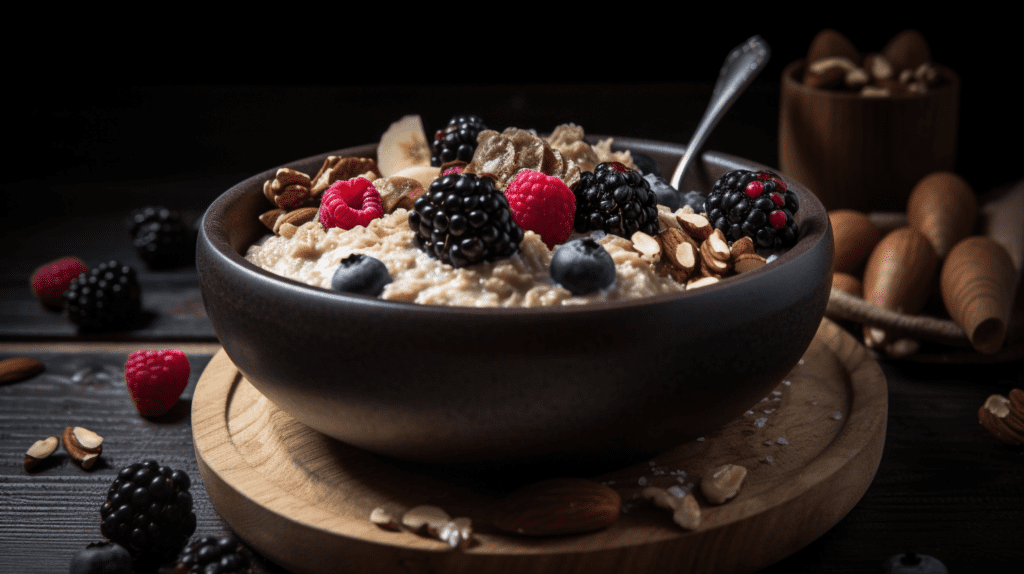
There are several misconceptions surrounding the bland diet that can prevent people from following it or receiving its benefits. One common myth is that the bland diet only includes tasteless foods, which can make it unappetizing and difficult to stick to.
However, while seasoning should be kept mild, there are still a variety of herbs and spices that can be used to add flavor without causing digestive distress.
Another myth about bland diets is that they are only necessary for people with medical conditions such as ulcers or inflammatory bowel disease. In reality, anyone who experiences gastrointestinal discomfort or wants to improve their digestive health may benefit from adding more easily digestible foods to their diet.
Finally, some people believe that a bland diet must be followed indefinitely in order to maintain optimal digestive health.
Overall, while there may be some limitations on what you can eat when following a bland diet for better digestive health – avoiding high-fat dairy products and acidic fruits.
This restrictive approach does not equate to being flavorless nor will it deprive you of essential nutrients if done temporarily under medical supervision before reintroduction of other sources.
Additional Digestive Health Tips For Optimal Wellness
To further improve your digestive health and maintain optimal wellness, here are some additional tips to keep in mind:
- Practice stress management techniques like deep breathing, meditation, yoga, or exercise as high levels of stress can worsen gastrointestinal distress.
- Consider weight reduction if you’re larger than wanted as excess body weight can contribute to acid reflux and other digestive issues.
- Use antacids or acid blockers as recommended by your doctor to reduce symptoms like heartburn and acid reflux.
- Make lifestyle changes like avoiding smoking, limiting alcohol consumption, and reducing caffeine intake to help improve digestion.
- Incorporate dietary recommendations like a low residue diet or a soft diet into your routine under the guidance of a healthcare professional.
- Following the BRAT (bananas, rice, applesauce, toast) diet may also be helpful for individuals experiencing acute gastrointestinal complaints such as vomiting or diarrhea.
- Aim for easily digestible foods like cooked vegetables, fruit and vegetable juices, canned or cooked fruits, refined hot cereals and flour products presented in small portions throughout the day.
- Incorporate low-fat dairy products into your diet such as yogurt as they are easy on digestion while composing nutrient-dense food options.
- Eat lean meats such as poultry and fish that have minimal fat content.
By following these additional tips in addition to incorporating a bland food diet with individualized dietary modifications may help reduce gastrointestinal distress while healing the gut.
Conclusion
Following a bland food diet can be an effective way to alleviate gastrointestinal distress and promote better digestive health. By including low-fat dairy, selected vegetables, low-fiber fruits, processed grains, and lean protein sources in your meals, you can safely satisfy your nutritional needs while reducing irritation and inflammation in the gut.
Avoiding high-fat dairy products, whole grains, fatty meats, acidic and seeded fruits as well as spicy and strongly-flavored foods is also crucial for success on this diet.
Meal planning with portion control along with adequate hydration and stress management are other essential aspects of maintaining optimal digestive wellness.
FAQs:
1. What is a bland food diet and how can it benefit digestive health?
A bland food diet typically consists of foods that are easy to digest and low in spices, fats, and acids. This type of diet may be recommended for those with digestive issues such as acid reflux or irritable bowel syndrome (IBS), as well as during recovery from certain medical procedures.
A bland food diet can help reduce inflammation in the GI tract and provide relief from symptoms such as bloating, gas, and heartburn.
2. What types of foods should I include in a bland food diet?
Foods that are typically allowed on a bland food diet include cooked vegetables such as carrots or green beans, lean proteins like chicken or fish, low-fat dairy products like yogurt or cheese, and complex carbohydrates like brown rice or whole grain breads. It’s important to avoid spicy foods, caffeine, alcohol, fried foods high in fat content when following this dietary plan.
3. Are there any downsides to following a bland food diet long-term?
While beneficial for short periods of time to allow the body an opportunity to heal one’s gut health , long-term adherence may mean significantly limiting flavor options which could leadt diets nutritionally deficient if not careful about nutritional intake selection rotation & variety choices over time . Thus it’s important speak consult with dietician prior making drastic changes one’s lifestyle habits .
4. Is it possible to make tasty meals while still following a bland food diet?
Yes! While seasoning is limited on this dietary option , taste doesn’t have to be sacrificed completely . By getting creative with herbs that don’t trigger digestive symptoms when consumed mindfully(i.e., parsley) alongside other common yet under used ingredients including garlic oil vinegar dressing ginger soy sauce etc.,
Even those following strict guidelines can enjoy flavorful recipes while taking care of stomach problems related troubles they might suffer due their body chemistry imbalances caused by diseases disorders medications etc.

